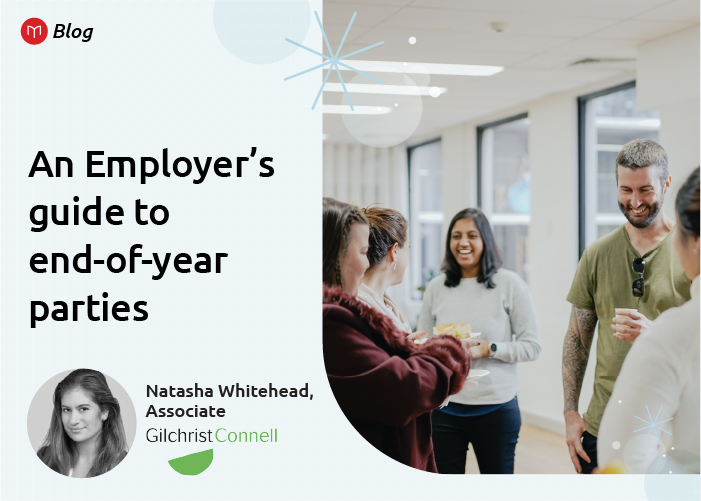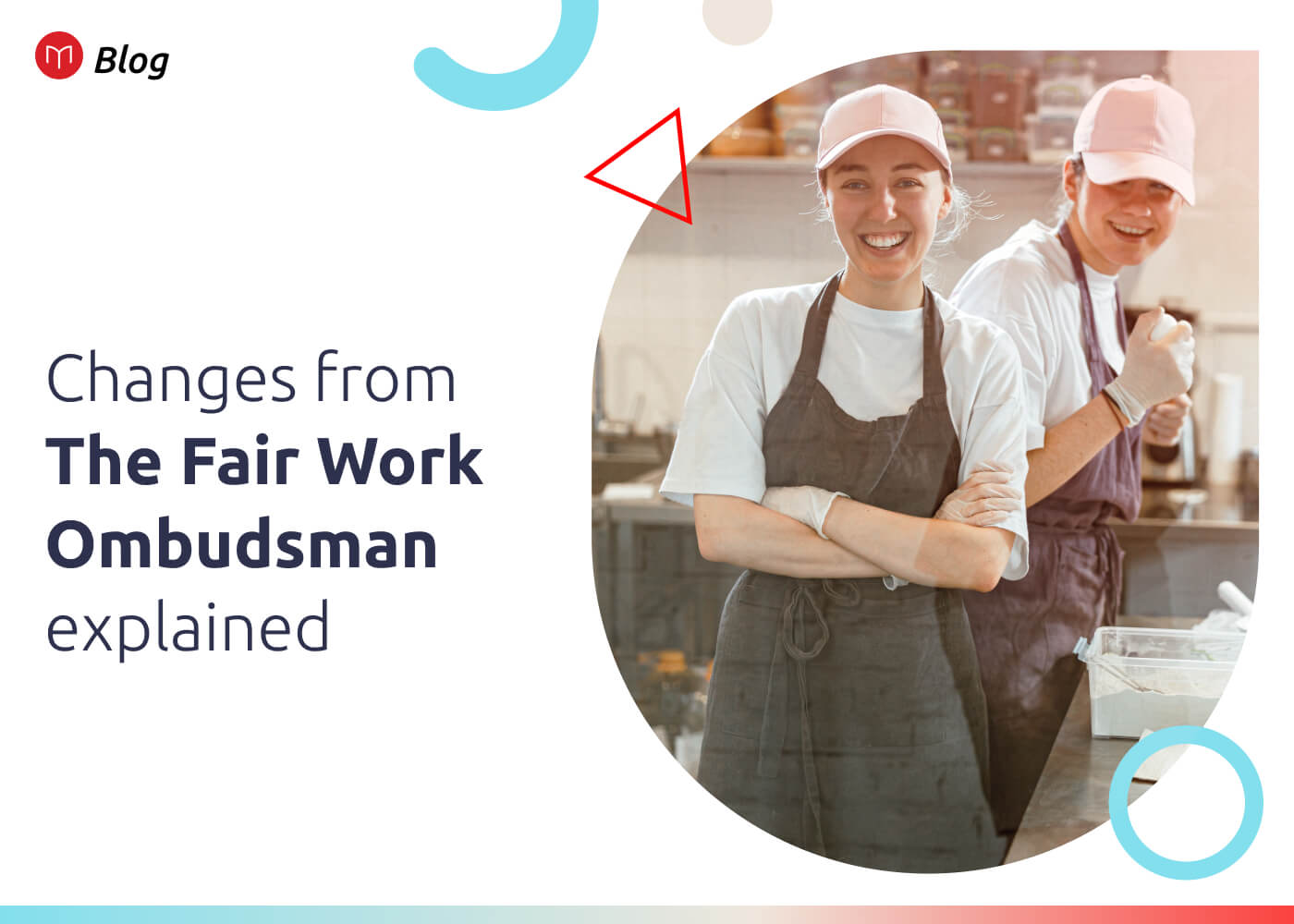An Employer’s guide to end-of-year parties
As the holiday season approaches, there is no doubt that anticipation and excitement yields itself to the annual workplace end-of-year party.
While this is a joyous time of year, this is also a critical time for businesses to ensure their policies, procedures and party-planning is consistent with the prohibition on sexual harassment as set out in the Fair Work Act 2009 (Cth), and other statutory health and safety obligations.
End-of-year functions can be a fertile ground for a host of workplace disputes and claims – ranging from allegations of misconduct, harassment and discrimination.
Recent amendments to the Sex Discrimination Act 1984 (Cth) (SDA) set out positive duties upon employers to take steps to eliminate, as far as possible, sex discrimination, harassment, behaviour conducive to a hostile workplace environment and acts of victimisation against complainants and whistleblowers.
An employer’s failure to comply with such measures may have significant and serious consequences. For example, the recent case of Taylor v August and Pemberton Pty Ltd [2023] FCA 1313, saw the Federal Court award damages to the victim of $195,000 in total.
But the costs of an investigation and of defending litigation for many businesses and employers may not be solely measured in dollars and cents. The degree of scrutiny businesses have faced over physical interactions between employees at work related events and functions is very high.
This article explores a case study showing just how far the Fair Work Commission has been prepared to go over criticising a workplace drinks function in the past, and some practical steps businesses can implement to help mitigate an incident at a workplace function.
CASE STUDY
The ‘workplace’ is where the work-drinks are
The Courts consistently recognise that the ‘workplace’ extends to more than just the four-walls of an office or yard. The definition of ‘workplace’ extends to the people who work together and wherever they interact with one another out of their connection to their employment or engagement.
The decision of John Keron v Westpac Banking Corporation [2022] FWC 221 shows how broadly the Fair Work Commission (FWC) is prepared to go to interpret whether the conduct complained of occurred ‘at work’ in the context of whether there was a valid reason for dismissal.
Mr Keron was dismissed by the employer for engaging in incidents of sexual harassment towards a female colleague without his employer asking for his response to the allegations.
The FWC made the following observations:
Sufficient connection to workplace
- The first incident in this case occurred at a non-compulsory drinks event (the “Sundowner”). which was organised after a training session.
- The FWC held that the Sundowner was sufficiently proximate to the ‘workplace’. This was because both Mr Keron and the victim attended the training and the Sundowner in the course of their employment.
- However, the FWC also determined that, even if this conclusion was incorrect, the incident was sufficiently connected to the workplace for the purpose of forming a valid reason for dismissal of Mr Keron because:
- The incident had impacted the victim’s productivity and caused her to be absent from work.
- The employer directed resources to support the mental health of both the victim and Mr Keron.
- The incidents sparked reputational harm to the employer given the media involvement surrounding the incident.
- Other employees were impacted by the incidents and resulting media scrutiny, particularly their preparedness to attend functions like these.
- Mr Keron argued that he didn’t have any working relationship with either victim – but the Commission found the incident had still impacted the employer’s ability to allocate work or effect the career progression or relocation of both Mr Keron and a victim involved in the incident.
Alcohol at workplace functions
The FWC also made several observations about the Sundowner event. Keep in mind these comments were made before the prohibition on sexual harassment came into effect on 6 March 2023.
- The choice of venue for the “Sundowner” event was a Sports Bar and the employees had unrestricted access to free alcohol for more than two hours.
- The choice of venue and free offering of unrestricted alcohol might be at odds with the need to create a safe workplace.
- Employers should consider whether alcohol is necessary or even appropriate at work-related events. If it is necessary, employers should ensure that:
- employees are safe during the event
- there is a conclusion to the event, and
- employees can get home safely.
Practical steps to party planning
Employers are responsible for preventing and responding to unsafe or inappropriate behaviour at end-of-year functions and after-parties.
The following steps might be a good starting point to ensure fulfilment of statutory safety obligations:
| 1. | Ensure that policies and procedures regarding drug and alcohol use, discrimination, bullying and sexual harassment are updated in line with the new legislative amendments. |
| 2. | Consider whether the party is consistent with the company’s commitment to health and safety as enshrined in its policies, including its Code of Conduct – this goes to whether the employer could be found to have tried to enforce its own policies and procedures. |
| 3. | Consider whether alcohol is really necessary for the event. |
| 4. | If alcohol is to be part of the event, employers should:
|
| 5. | Ensure the event has a defined finish time (although note that if workers go to an after-party, this may not preclude liability from an incident occurring at an after party). |
| 6. | It’s also important to be aware of the message employers send employees to ‘require’ attendance at work functions or networking events in light of:
|
If you need assistance with meeting your party-planning obligations or an incident that occurs at a Christmas Party, contact the author on nwhitehead@gclegal.com.au or a member of the Gilchrist Connell Workplace Relations and Health & Safety Team via our website: www.gclegal.com.au
DISCLAIMER
This publication constitutes a summary of the information of the subject matter covered. This information is not intended to be nor should it be relied upon as legal or any other type of professional advice. For further information in relation to this subject matter please contact the author.
About the Author
 | Natasha Whitehead Natasha is a Lawyer in Gilchrist Connell’s workplace relations and safety team. Natasha has a deep understanding of employment related issues with experience acting on both sides of a case. She comes from a strong plaintiff background which she applies to her experience in representing employers in the Fair Work Commission, Federal Circuit and Family Court of Australia and the Federal Court of Australia. This breadth of experience allows her to find quick and cost-effective resolutions. Natasha has broad experience in all areas of employment law and workplace relations. She has acted in matters involving termination of employment, workplace investigations, employee entitlements, interpretation of contracts of employment, statutory discrimination and occupational health and safety. Natasha is an active member of the Law Reform Committee for Victorian Women Lawyers. |



